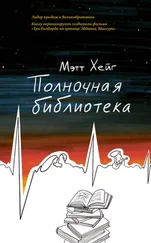Мэтт Хейг - How to Stop Time
Здесь есть возможность читать онлайн «Мэтт Хейг - How to Stop Time» весь текст электронной книги совершенно бесплатно (целиком полную версию без сокращений). В некоторых случаях можно слушать аудио, скачать через торрент в формате fb2 и присутствует краткое содержание. Год выпуска: 2017, Издательство: Canongate Books, Жанр: Современная проза, на английском языке. Описание произведения, (предисловие) а так же отзывы посетителей доступны на портале библиотеки ЛибКат.
- Название:How to Stop Time
- Автор:
- Издательство:Canongate Books
- Жанр:
- Год:2017
- ISBN:нет данных
- Рейтинг книги:4 / 5. Голосов: 2
-
Избранное:Добавить в избранное
- Отзывы:
-
Ваша оценка:
- 80
- 1
- 2
- 3
- 4
- 5
How to Stop Time: краткое содержание, описание и аннотация
Предлагаем к чтению аннотацию, описание, краткое содержание или предисловие (зависит от того, что написал сам автор книги «How to Stop Time»). Если вы не нашли необходимую информацию о книге — напишите в комментариях, мы постараемся отыскать её.
How to Stop Time — читать онлайн бесплатно полную книгу (весь текст) целиком
Ниже представлен текст книги, разбитый по страницам. Система сохранения места последней прочитанной страницы, позволяет с удобством читать онлайн бесплатно книгу «How to Stop Time», без необходимости каждый раз заново искать на чём Вы остановились. Поставьте закладку, и сможете в любой момент перейти на страницу, на которой закончили чтение.
Интервал:
Закладка:
The reason I have been avoiding it is because this is where I first met Rose. My ventures to Chapel Street and Well Street had been too painful. But I need to get over her. I need to get over everything. I need ‘closure’ as people say these days. Though you can never close the past. The most you can do with it is accept it. And that is the point I want to reach.
I am on Fairfield Road, outside the illuminated despair of the bus station, putting my hand in a plastic bag to pick up Abraham’s shit, then placing it in the bin. The history of London could be charted by the steady and consistent decline of visible faeces in public streets.
‘You know, Abraham, you shouldn’t really do this on the street. That is why we go to the park. You know, that green place, with the grass?’
Abraham feigns ignorance as we carry on walking.
I look around. Trying to work out where it is that I first saw her. It is beyond impossible. There is nothing recognisable. As with Chapel Street and Well Lane, not a single building that is there now was there then. I see, through a window, a row of people running on treadmills. They are all staring up at what I assume is a row of TV screens above their heads. Some of them are plugged into headphones. One is checking her iPhone as she runs.
Places don’t matter to people any more. Places aren’t the point. People are only ever half present where they are these days. They always have at least one foot in the great digital nowhere.
I try to work out where the geese stalls used to be, and where she had been standing with her fruit basket.
And then I find it.
I stand still a moment, with Abraham tugging on the lead as traffic whooshes by, oblivious. The headache ups a notch and I feel dizzy enough to need to stand back against a brick wall.
‘Just a minute, boy,’ I tell Abraham. ‘Just a minute.’
And the memories break through like water bursting a dam. My head pulses with a pain even stronger than I’d had in the class earlier, and for a moment, in a lull between the sound of cars, I feel it, I feel the living history of the road, the residue of my own pain lingering in the air, and I feel as weak as I did in 1599, when I was still heading west, delirious and ready to be saved.
PART THREE
Rose
Bow, near London, 1599
I had been walking near continuously for three days. My feet were red and blistered and throbbing with pain. My eyes felt dry and heavy from the short doses of sleep I had managed to steal beside forest paths and on grass verges by the highway. Though, in reality, I had hardly slept at all. My back was sore from carrying the lute. I was hungrier than I had ever been, having had nothing in the last three days but berries and mushrooms and a small end of bread thrown to me by a pitying squire who passed me on his horse.
But all of that was fine.
Indeed, all of that was a welcome distraction from the intensity of my mind. The intensity seemed to have spilled out of me, infecting the grass and the trees and every brook and stream. Every time I closed my eyes I thought of my mother on that last day, high in the air, her hair blowing in the wind towards me. And her cries still echoed in my ears.
I had been a ghost of myself for three days. I’d gone back to Edwardstone a free man, but I couldn’t stay there. They were murderers. Every single one of them. I went back to the cottage and picked up mother’s lute and searched for some money but there was none. Then I left. I just ran. I couldn’t be in Edwardstone. I never wanted to see the likes of Bess Small or Walter Earnshaw again, just as I never wanted to walk by the Giffords’ cottage. I wanted to run away from this feeling of terror and loss inside me, of infinite loneliness, but of course there was no running away from that.
But now I was getting close to London. I had been told by a man with a lisp in the village of Hackney that if I was heading in to London I would pass by the Green Goose Fair, at Fairfield Road in Bow, and there would be food there, and ‘various madness’. And now here I was. Fairfield Road. And there was the start of the madness: a cow, standing square in the road, eyeballing me. As if trying to communicate something that was too easily lost in the chasm between animals and people.
As I carried on walking, beyond the cow, there were houses on either side of me. And unlike in other villages, the houses just kept going on and on, in a straight line, on either side of the road. There was hardly any space between them. This was London, I realised. And I saw crowds and crowds of people ahead of me, filling the street.
I remembered how much my mother hated crowds, and felt her fear inside me, like a ghost emotion.
And then, as I got closer I noticed the noise. The competing shouts and cries of traders. The drunken laughter of the ale-sozzled. The grunts and moos and hisses of assorted animals.
Pipes. Singing. Mayhem.
I had never seen anything like it. It was chaos. The scene was made more intense by my delirium.
There were so many people. So many strangers. Laughter flapped out of people like bats from a cave.
An old red-cheeked woman sighing like a carthorse as she carried two panniers dangling from a wooden brace and loaded with fish and oysters.
Two boys fighting near an impromptu pen of pigs.
A pie stall.
A bread stand.
Radishes.
Lace.
A girl, no more than ten, carrying a basket full of cherries.
Roast goose stalls on both sides of the road.
A lettuce lying in a puddle.
An amused man passing me and pointing to a drunkard struggling to get back on his feet. ‘Two of the bell and mark him, boy, whip-cat tippled already.’
Rabbits.
Two live geese, hissing and widening their wings at each other.
More pigs. More cows. More drunks. Many more drunks.
A well-dressed blind woman being led around by a scruffy-looking orphan girl.
Lame beggars.
A woman, coming in close to a random stranger, grabbing between his legs and whispering a drunken offer.
The rowdy bustle around the ale stalls.
A giant ‘from the Nether Lands’ – cried a man, hawking the novelty – and a dwarf ‘from the West Country’, side by side, to maximise the money-making effect.
A man swallowing a sword.
A fiddler. A piper. A flautist, eyeing me with suspicion, with dexterous fingers playing ‘Three Ravens’.
And the smells: roasting meat, ale, cheese, lavender, fresh shit.
The dizziness was back, but I kept on staggering forward.
My hunger, presented with the scent of so much food, was now actually a kind of pain. I walked over towards one of the goose stalls. I stood there, inhaling the roast meat.
‘How much is the goose?’
‘Three shillings, lad.’
I didn’t have three shillings. The truth was: I didn’t have any money at all.
I staggered backwards. Stood on a man’s foot.
‘Mind yourself, boy!’
Boy, boy, boy .
‘Yes, I am a boy,’ I mumbled, even though eighteen was positively middle-aged at that time.
And that is when things began to spin.
I was generally quite strong. One of the many quirks of my biology was that I was never really ill. I’d never had a cold, or the flu. I’d never vomited in my entire life. I’d never even had a bout of diarrhoea, which, in 1599, was an incredibly, suspiciously rare thing to be able to say. Yet right then I was feeling dreadful. There had been rain earlier, but now the sun was out and the sky was a hard blue. The same oblivious blue it had been above the River Lark. The heat added to the intensity of everything, which was intense enough to begin with.
‘Maman,’ I muttered, delirious. ‘Maman.’
Читать дальшеИнтервал:
Закладка:
Похожие книги на «How to Stop Time»
Представляем Вашему вниманию похожие книги на «How to Stop Time» списком для выбора. Мы отобрали схожую по названию и смыслу литературу в надежде предоставить читателям больше вариантов отыскать новые, интересные, ещё непрочитанные произведения.
Обсуждение, отзывы о книге «How to Stop Time» и просто собственные мнения читателей. Оставьте ваши комментарии, напишите, что Вы думаете о произведении, его смысле или главных героях. Укажите что конкретно понравилось, а что нет, и почему Вы так считаете.
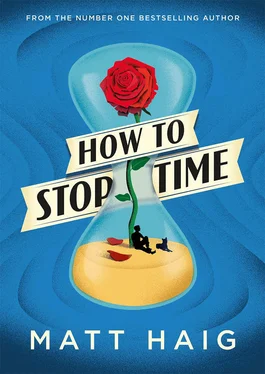
![Мэтт Хейг - Влюбиться в жизнь [Как научиться жить снова, когда ты почти уничтожен депрессией]](/books/28868/mett-hejg-vlyubitsya-v-zhizn-kak-nauchitsya-zhit-sn-thumb.webp)
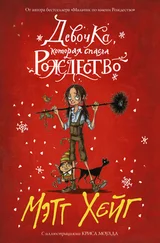
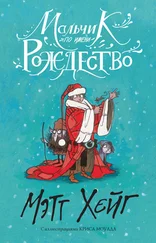
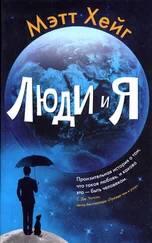

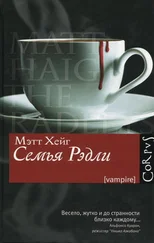
![Мэтт Хейг - Полночная библиотека [litres]](/books/388474/mett-hejg-polnochnaya-biblioteka-litres-thumb.webp)
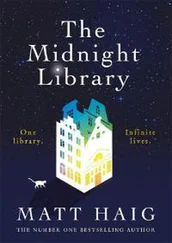
![Мэтт Хейг - Клуб призрачных отцов [litres]](/books/392121/mett-hejg-klub-prizrachnyh-otcov-litres-thumb.webp)

![Мэтт Хейг - Отец Рождество и Я [litres]](/books/421076/mett-hejg-otec-rozhdestvo-i-ya-litres-thumb.webp)
